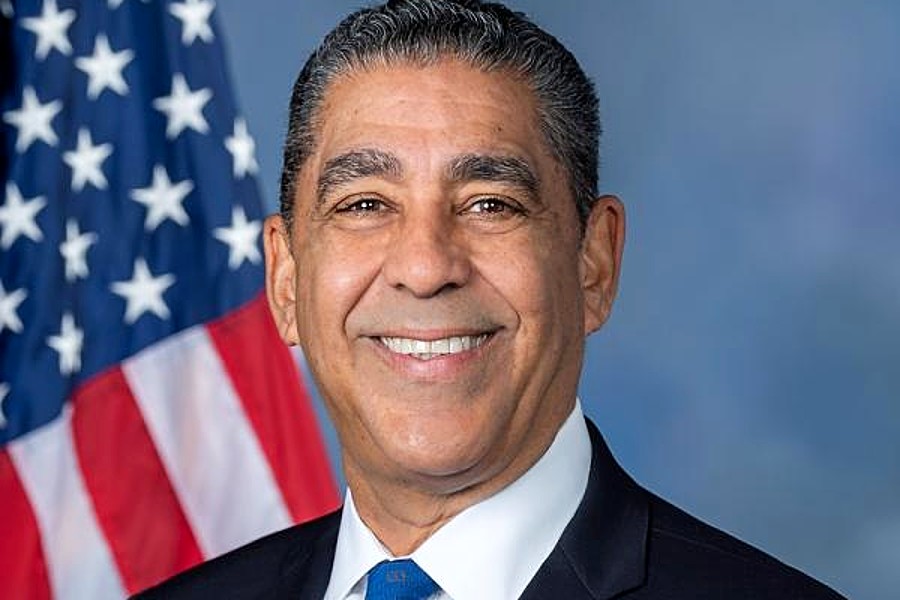
Yesterday, Haitian Women for Haitian Refugees and TakeRoot Justice released a new report, “Humanitarian Parole Crisis: How Racist Policies and Practices Deny Haitian Refugees Work Authorization.”
The report finds that U.S. immigration policies and practices create barriers for Haitian refugees by granting them insufficient humanitarian parole periods, which, coupled with substantial delays in processing work authorization applications, prevent people from accessing the legal employment to which they are entitled.
The report and executive summary, based on interviews conducted by Haitian Women for Haitian Refugees and TakeRoot Justice, find that grants of humanitarian parole for Haitian asylum seekers were shortened during the Trump and Biden administrations.
Humanitarian parole allows individuals to enter the U.S. for a temporary period based on urgent humanitarian reasons. The parole allows refugees, asylum seekers and migrants to apply for a critical lifeline: the Employment Authorization Document (EAD), also known as a work permit, so they can support themselves and their families as they pursue a more permanent immigration status. However, shortened humanitarian parole terms coupled with substantial systemic backlogs in processing employment authorization documents have resulted in a system that fails those who need it.
Haitian refugees, asylum seekers and migrants have been granted humanitarian parole periods that were effectively meaningless because they provided insufficient time to apply for employment authorization, let alone to work. Interviews with impacted Haitians and legal service providers further revealed:
- Humanitarian parole, and the associated ability to apply for employment authorization, is critical in the lives of refugees, asylum seekers, and migrants.
- Humanitarian parole for Haitians was massively curtailed under the Trump administration, a trend which continued under the Biden administration, making it impossible for refugees, asylum seekers and migrants to access or fully utilize their EAD.
- A dramatic backlog in processing EAD applications means that even Haitians with relatively longer parole terms are still left without meaningful access to employment authorization.
- The curtailment of humanitarian parole, together with delayed processing of EADs, was received as a deliberate attempt to strip people of their right to work, and a manifestation of anti-Haitianism and anti-Black racism at large.
- The system of granting humanitarian parole, as well as other immigration processes, has become opaque and confusing even to those who are closely monitoring the system. This leaves refugees, asylum seekers, migrants, legal professionals, advocates, Haitian community organizations and Black immigration organizations at large with limited recourse and unable to assist their clients effectively and equitably.
- The substantial delays in processing employment authorizations, coupled with shortened humanitarian parole periods, are devastating for Haitians who are desperate to work with dignity to support their families.
“Our report reveals the shockingly brief humanitarian parole periods that have been granted to Haitian asylum seekers by the U.S. government. Some parole periods have been as short as two weeks. Others have been up to a year. Neither of these is sufficient because they expire during the protracted processing of Employment Authorization Documents. The shorter periods expire before Haitians can even reach their intended destinations,” said Ninaj Raoul, executive director of Haitian Women for Haitian Refugees. “This situation leads to denials of work permits for those that need it the most. In contrast, Ukrainian refugees, who were granted one-year paroles, had EADs in hand within six to eight weeks of applying. Our work and this report are focused on fighting for an equitable process for all, where work permits are quickly expedited so that people can live and work with dignity.”
“The interviews illuminate the lasting legacy of racist immigration policies and practices towards Haitians, many of which were originally designed to deter Haitian migration and facilitate their deportation,” said Irene Linares, senior research and policy coordinator at TakeRoot Justice. “The Biden administration should partner with Haitian Women for Haitian Refugees and other Black immigrant advocacy groups to immediately implement the report’s policy recommendations.”
Haitian Women for Haitian Refugees was founded in 1992 to respond to the refugee crisis faced by Haitian immigrants in the U.S. and Guantanamo Bay. Over the years, HWHR has provided support to thousands of families who sought asylum in the U.S. after being persecuted in Haiti. With a transnational approach, the organization has promoted climate justice and engages individuals and communities in various solidarity response projects, including the Birthright Campaign in the Dominican Republic to combat anti-Haitianism and statelessness, water justice to address increased droughts in Haiti, and relief for Haitian victims during and in the aftermath of natural and man-made disasters.
TakeRoot Justice provides legal, participatory research and policy support to strengthen the work of grassroots and community-based groups in New York City to dismantle racial, economic and social oppression.
- LISC CEO Michael T. Pugh Recognized Among 2024 Worthy 100 Leaders
- NY Lawmakers Celebrate Historic MENA Data Recognition Bill Signed By Hochul
- Sponsored Love: Leadership Skills Training Courses: Invest In Your Future Today
- Senator Hoylman-Sigal Calls On Independent Schools To Adopt NYC Public School Calendar
- Mayor Adams Celebrates 65 Million NYC Visitors In 2024, Second-Highest Ever
Become a Harlem Insider!
By submitting this form, you are consenting to receive marketing emails from: . You can revoke your consent to receive emails at any time by using the SafeUnsubscribe® link, found at the bottom of every email. Emails are serviced by Constant Contact









